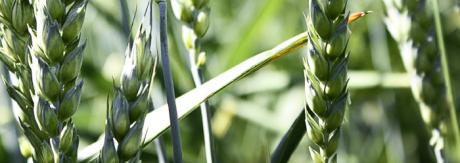
Biofuels or set-aside land
Even though it might be true that an area of approx. 70,000 km2 could be used to feed 127 million people, it does not mean that there would have 127 less people starving in the world.
Land enough
This is an oversimplified reflection, and a good example of how the debate about food vs. fuel is run by emotions and not facts. The reason why there are people starving today is not because of food shortages nor is it because a lack of land for the cultivation of food.
From 1993 to 2007 about 10 % of EU agricultural land was set aside - a set-aside that was introduced and maintained through the entire period, because the alternative was an overproduction of grain.
When the production of biofuels increased in the middle of the 00s, part of the set-aside stopped - not because the land was needed for the production of food, but because it found other applications, like the production of energy.
Therefore, it is a paradox that an organisation makes up a calculation which assumes that one ha of land for the production of biofuels equals the cut down of one ha of e.g. rainforest somewhere else in the world, or that there are people starving because this ha is not used for the production of food.
Food waste
To say that you should grow food instead of energy is a very simplified reflection, which builds on an obsolete approach to production. A reflection which at the same time is very short-sighted and will not result in a more fair distribution of food.
At present time, there is food enough to feed everyone in the world. That people are starving is not because of food shortages, but because of things such as bad infrastructure and climate change, which has resulted in land which before was used for the cultivation of food is no longer fertile. But it is also due to the fact that there is a wide difference between the rich and the poor parts of the world. On top of this is a huge waste of resources. In the western part of the world we throw away huge amounts of edible food. In Denmark alone, we throw away 540.000 tons of edible food every year.
According to the Food and Agriculture Organisation of the United Nations (FAO), 1/3 of the food produced every year is thrown away or wasted.
Fuel vs. Food – a simplified dilemma
The report from Oxfam describes how it believes that the bioenergy industry is a contributing factor to global hunger, and that it causes people to be driven away from their land because that land is to be used for the cultivation of biomass for the bioenergy production.
The problem with reports like this and many others is that it cuts all biofuels with the same brush. However, if you read the report, you will find out that it is far from all biofuels are bad, and some actually have a very beneficial effect on both climate and environment. For example the report states:
”…not all biofuel production is bad. In fact, Oxfam research shows that biofuel production can yield benefits for poor people when done properly.”
Good sustainability criteria
The report suggests a number of sustainability criteria to secure a sustainable production of biofuels, and make sure that the production in one country does not cause negative effects in another country. And this is exactly what it is all about, because if all biofuels were subject to the same good sustainability criteria, it would create an incentive for an improvement of the existing production facilities, and leave only the productions with a high CO2 reduction capacity on the market.
Follow the developments within biorefining. hveiti regularly informs about our efforts to improve the environment.
Copyright © 2011 | Hveiti | Design Rabotnik




